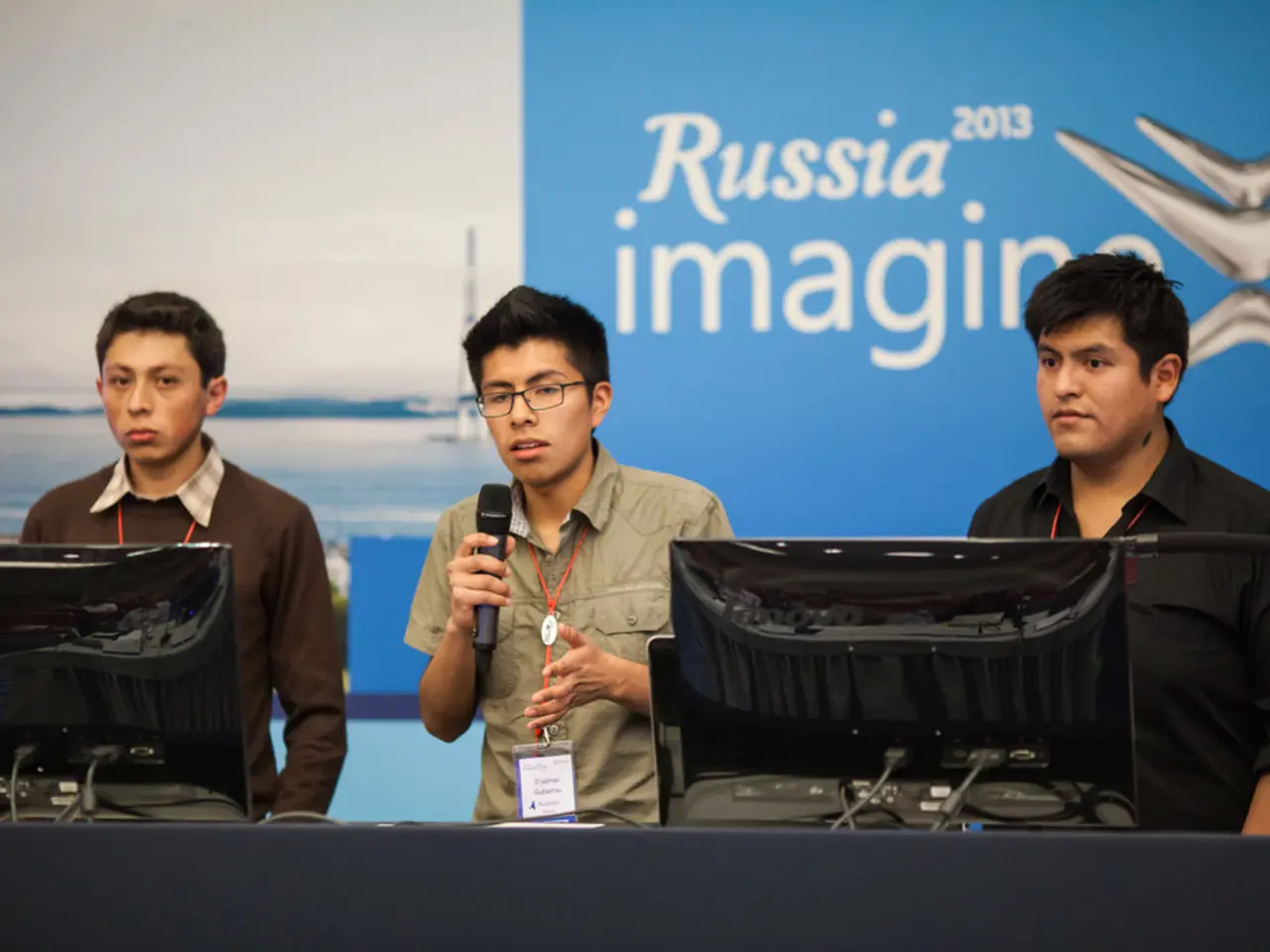China calls upon Nvidia, a leading chip company, due to suspected security concerns
Nvidia Faces Security Concerns Over AI Chips in China Amidst US-China Tech Tensions
Nvidia, the world-leading producer of AI semiconductors, is currently embroiled in a dispute with Chinese authorities over the security of its H20 artificial intelligence chips. This conflict arises amid broader US-China tech tensions, with the Chinese government expressing concerns about potential backdoor security risks that could allow location tracking or remote shutdown, raising national security and user privacy fears in China [1][2][4].
The issue involves the "H20," a less powerful version of Nvidia’s AI processing units, which the company developed specifically for export to China. This dispute reflects the delicate balance of US export controls, Beijing’s push for technological self-reliance, and Nvidia’s attempts to maintain its presence in the lucrative Chinese market amid escalating US-China geopolitical and technological rivalry [1][2][3].
China’s Cyberspace Administration (CAC) convened meetings with Nvidia to demand thorough explanations and evidence about the chip’s security profile, reflecting Beijing’s caution as it aims to reduce dependence on foreign technology and accelerate domestic semiconductor development [1][2][4]. Meanwhile, US lawmakers have proposed requiring built-in location tracking in such chips, complicating the situation [2].
Nvidia's CEO, Jensen Huang, stated during a recent visit to Beijing that the company remains committed to serving local customers. However, the Chinese government has been pushing for more self-reliance in the technology sector, particularly in AI and semiconductors, for national security reasons [1][3]. Chinese President Xi Jinping has called for the country to enhance self-reliance in certain areas deemed vital for national security, including AI and semiconductors [4].
This dispute comes at a challenging time for the Chinese economy, which is facing a property sector crisis and heightened trade headwinds under US President Donald Trump [5]. Despite these challenges, Nvidia this month became the first company to hit $4 trillion in market value [6].
[1] Reuters. (2025, July 27). Nvidia summoned by Chinese internet authorities over security issues, sources say. Retrieved from https://www.reuters.com/article/us-nvidia-china-idUSKCN25F0H1
[2] The Wall Street Journal. (2025, July 28). Nvidia Faces Scrutiny Over AI Chips in China. Retrieved from https://www.wsj.com/articles/nvidia-faces-scrutiny-over-ai-chips-in-china-11627371998
[3] Bloomberg. (2025, July 27). Nvidia Resumes Sales to China After U.S. Lifts Export Curbs. Retrieved from https://www.bloomberg.com/news/articles/2025-07-27/nvidia-resumes-sales-to-china-after-u-s-lifts-export-curbs
[4] CNBC. (2025, July 28). Nvidia faces scrutiny from China over security vulnerabilities in its AI chips. Retrieved from https://www.cnbc.com/2025/07/28/nvidia-faces-scrutiny-from-china-over-security-vulnerabilities-in-its-ai-chips.html
[5] The New York Times. (2025, July 29). China's Economy Faces Challenges as Property Sector Crisis Deepens. Retrieved from https://www.nytimes.com/2025/07/29/business/china-economy-property-crisis.html
[6] MarketWatch. (2025, August 3). Nvidia becomes first company to hit $4 trillion in market value. Retrieved from https://www.marketwatch.com/story/nvidia-becomes-first-company-to-hit-4-trillion-in-market-value-2025-08-03
- The dispute over Nvidia's H20 AI chips in China highlights the growing concern about technology security, particularly in AI and semiconductors, as China aims to reduce dependence on foreign technology.
- As the US-China tech tensions escalate, national security and user privacy fears have arisen in China over potential backdoor security risks in Nvidia's AI chips.
- Amidst a challenging economic environment in China, marked by a property sector crisis and trade headwinds, Nvidia this month became the first company to reach a market value of $4 trillion.
- In the midst of the US-China tech rivalry and China's push for technological self-reliance, Nvidia is grappling with ongoing scrutiny over its AI chips, complicating the company's efforts to maintain its presence in the lucrative Chinese market.




